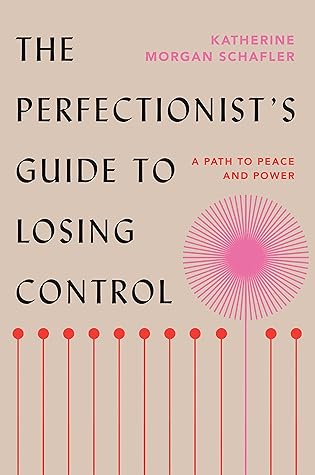More on this book
Community
Kindle Notes & Highlights
Read between
March 8 - March 24, 2024
You admit that you’d never be satisfied with an average life—you long to excel, and you know it. You acknowledge just how much you thrive by being pushed—you need a challenge or your boredom risks tipping over into a depressive episode. And you stop playing small and denying your gifts—you were born to shine, and you can feel it.
the push to curb perfectionism and be “perfectly imperfect” is directed towards women. Have you ever heard a man refer to himself as a “recovering perfectionist”?
That’s because you didn’t understand it as a power and a gift, you didn’t respect it, you tried to deny it, and you reduced it to a proclivity for tidiness and punctuality, though real perfectionism has little to do with either. The more you pushed your perfectionism away, the harder it pushed back. You couldn’t get rid of your perfectionism if you tried (and try you did) because it’s a fundamental component of who you are.
Perfectionists are intelligent people who understand that everything can’t work out perfectly all the time. What they sometimes have trouble with is understanding why they still feel so disappointed by imperfection in the face of that intellectual concession. What they sometimes wonder about is why they feel so compelled to endlessly strive. What they’re sometimes confused by is what they’re striving for in the first place. What they often question is why they can’t just enjoy relaxing “like a normal person.” What they want to know is who they are outside of what they accomplish.
Perfectionists never stop noticing the gulf between reality and the ideal, and they never stop longing to actively bridge the gap.
All perfectionists chase that which is unattainable, “unrealistic,” an ideal.
I don’t know one balanced woman. I know a lot of women who are two extra days in a week away from feeling balanced, or one professional housecleaning service away from feeling balanced, or one generous extension on the deadline away from feeling balanced, or three entire days of their children in someone else’s loving and competent care away from feeling balanced. I know a lot of women who, like Rupa and like old versions of myself, structured a very balanced-looking life only to feel something between fidgety and haunted by the tap tap tapping. It’s easy to get hooked on the feeling that
...more
Balance isn’t real; it doesn’t exist. It’s just an idea. Balance is not possible in practical application due to issues such as time and reality. Balance is always around the corner, after the holidays, as soon as this very serious situation is handled. Balance never actually shows up, but we don’t notice because we’re too busy blaming ourselves for its delay. The “we” I’m referring to here is women.
Why do we single out perfectionism as a negative marker in women?
A rigid insistence on everything being flawless, perfect, and without errors or faults, including one’s own and others’ performance; sacrificing of timeliness to ensure correctness in every detail; believing that there is only one right way to do things; difficulty changing ideas and/or viewpoint; preoccupation with details, organization, and order.[4]
As Dr. Brené Brown’s research demonstrates, “blame is an attempt to discharge your pain.”[12] We think, If something is your fault and not my fault, I don’t have to deal with it, you have to deal with it. Blame doesn’t work like that. Blaming someone else does nothing to absolve you of your pain.
Incrementalism is a little-by-little, inch-by-inch, slowly-but-surely, entirely unceremonious affair. Incrementalism is a hard sell, except that it’s so effective.
Healing is boring sometimes; no one tells you that. Amidst the tedium, we look for the shortcut, but I’ve never seen anyone take a shortcut to healing that worked in real life. Have you? As the expression goes, “Doing the work is the shortcut.”
You are not on the earth to complete tasks and then die. You are not a bar graph of output. You are a human being.


